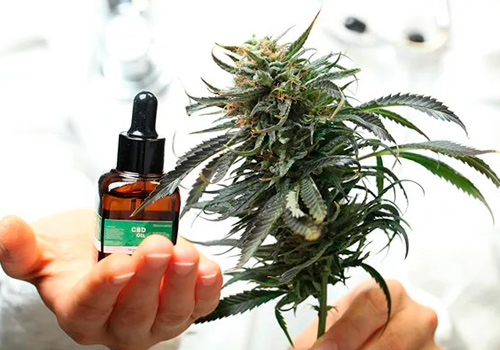The landscape of healthcare is ever-evolving, and in recent years, medical marijuana has ascended to the forefront of many discussions. This is particularly true in regions where obtaining a medical marijuana card has become an option for patients seeking alternative treatment methods. With the increasing availability of medical marijuana dispensaries, individuals now have the opportunity to buy medical marijuana as a potential solution to their health issues.
But what does science say? Is medical marijuana safe, and what are the potential benefits and risks of using marijuana as a medical treatment? These are the questions we aim to answer in this comprehensive examination of the topic.
Our focus will be to delve into various medical marijuana treatment benefits for a variety of health conditions. We will explore how medical marijuana doctors are incorporating this plant into treatment plans for everything from anxiety and autism to cancer. We will also look at the role of medical marijuana in seizure control, depression alleviation, and PTSD management.
Safety of Medical Marijuana – pieces of evidence for 2023
The safety of medical marijuana has become a focal point in discussions about alternative treatments for various conditions.
When comparing the safety of marijuana to opiate therapy, medical marijuana emerges as a potentially safer alternative. Opioids are not typically the first-choice treatment for chronic pain due to the high risk of dependence and misuse. Conversely, cannabis, recommended by a medical marijuana doctor, may be an effective alternative to opioid treatment for chronic pain, with less risk of fatal overdose.
However, like all medications, cannabis has some risks and side effects to be aware of, most of which are due to THC. These side effects include drowsiness, headache, dry mouth, red eyes, elevated mood, increased appetite, and in cases of high doses or prolonged use, more severe side effects. CBD, on the other hand, doesn’t seem to cause the same side effects as THC and may even help reduce THC side effects when they’re consumed together. This is why it’s mandatory for your own safety to consume medical marijuana under control of medical professionals. Use our LAMMD platform to receive a professional consultation and medical evaluation on your health condition to be able to have a medical marijuana card.
Medical marijuana benefits
Cannabis, the plant used to produce medical marijuana, has two primary active components: THC (delta-9-tetrahydrocannabinol) and CBD (cannabidiol). THC interacts with cannabinoid receptors in the brain, resulting in various effects such as relaxation, euphoria, and increased appetite. CBD, on the other hand, offers medicinal properties without the psychoactive effects of THC. This multifaceted nature of cannabis is leveraged for numerous medical treatments, which are usually administered under the guidance of a medical marijuana doctor after obtaining a medical marijuana card.
The ways in which individuals can consume cannabis are diverse. They can smoke it, vape it, ingest it as edibles, or drink it as tea. However, it’s essential to remember that everyone’s body reacts differently to cannabis. Therefore, the impact of marijuana can vary significantly from person to person. While some people might feel relaxed, calm, and euphoric, others could experience feelings of anxiety or paranoia. Some users might become talkative, while others may become quiet.
Medical cannabis benefits for mental health
An examination of numerous studies focusing on the medicinal benefits of medical cannabis deduced that, while CBD shows potential, more extensive trials are essential to verify its efficacy as a treatment. These studies have reported:
- Enhanced symptom management for individuals suffering from schizophrenia.
- Diminished anxiety in certain individuals with anxiety disorders.
- Decreased cravings in people with tobacco dependence.
- Improved symptoms in people undergoing withdrawal from cannabis.
Risks of cannabis for health
Despite the prominent benefits of medical marijuana therapy, there are some possible negative outcomes that are related to using medical cannabis. American Addiction Centers provide lists of short and long-term negative marijuana effects.
Short-term effects
- Altered sensory perception (such as an increase in sensitivity to sound).
- Changes in the perception of time.
- Mood changes.
- Impaired body movement.
- Impaired cognition and memory.
- Increased heart rate.
- Bloodshot eyes.
Long-term effects
- Respiratory difficulties. Frequent, long-term use may increase risk of cough, chronic bronchitis, pneumonia, and other lung illnesses.
- Pregnancy-related risks. Potential for problems with attention, memory, and problem-solving in children exposed to marijuana in utero. Moderate amounts of THC may pass from nursing mother to child, possibly impacting brain development.
- Risk of testicular cancer. Possible link between adolescent marijuana use and an aggressive form of testicular cancer.
- Cannabinoid hyperemesis syndrome. Rare conditions characterized by severe cyclic nausea and vomiting, can develop with chronic use.
- Adolescent brain development issues. Regular use during adolescence could lead to impaired learning, memory, and impulse control. Potential memory loss and IQ decline in adults linked to chronic or heavy use.
- Psychiatric disorders. Increased risk of mental health disorders such as schizophrenia, depression, and anxiety, especially in genetically predisposed individuals. Can worsen symptoms of existing schizophrenia.
- Addiction. Marijuana can be addictive, with higher risk when use begins in adolescence.
- Increased risk of other substance use disorders. Potential association between marijuana use and increased risk of addiction to other substances like alcohol or nicotine.
- Unknown consequences of high potency use. Increasing trend of high-potency marijuana may pose additional, unknown risks. Lack of knowledge about effects of higher THC concentrations on the body and brain, especially during development.
As you may see, mostly, described risks are related to uncontrollable overuse or any other type of marijuana abuse as a drug. While medical marijuana treatment is thoroughly thought out. The dosage and type of treatment are professionally selected for your personal case. Sign up on LAMMD platform to receive the best medical marijuana doctor guidance. If you follow the instructions of your advisor strictly, you may be sure that your medical cannabis journey will be completely safe.
Medical marijuana treatment
The process of medical marijuana treatment typically involves several steps. Initially, patients must meet with a medical marijuana doctor to discuss their symptoms and previous treatments. The doctor then determines whether the patient qualifies for medical marijuana treatment based on the state’s list of qualifying conditions. If approved, the patient can then apply for a medical marijuana card, which allows them to purchase cannabis products from a medical marijuana dispensary legally.
Medical marijuana is used to treat a wide range of conditions, including chronic pain, multiple sclerosis, cancer-related symptoms, epilepsy, and many others. The benefits of medical marijuana treatment include its ability to alleviate symptoms and improve the quality of life for many patients.

Treatment for anxiety
Medical marijuana is increasingly recognized for its potential to alleviate the self-perceived feelings of anxiety, depression, and stress, even if these effects are typically experienced in the short term. The ability of medical marijuana to provide relief, albeit temporary, is a testament to its therapeutic potential.
Although its long-term use in addressing depression requires more study, the short-term relief that medical marijuana treatment provides can be a valuable tool for patients navigating these challenging conditions.
Research on medical marijuana treatment for anxiety is ongoing, but early findings hint at promising results. CBD, one of the compounds found in cannabis, shows promise in treating various forms of anxiety, including social anxiety disorder. This suggests a potential avenue for people to consider applying for a medical marijuana card to manage their anxiety symptoms.
Importantly, medical marijuana is not a one-size-fits-all treatment. It is a complex plant with varying effects depending on the concentrations of its compounds. For instance, high levels of THC may lead to an increase in certain anxiety symptoms. However, this highlights the importance of personalized medical advice and treatment plans, underlining the crucial role of medical marijuana doctors in guiding patients.
Autism treatment
Research on the use of medical cannabis as a treatment for autism is still in its early stages. While there is limited evidence available, some studies suggest that medical marijuana could have potential benefits for individuals with autism spectrum disorder (ASD).
One of the challenges in exploring medical marijuana treatment for autism is the wide spectrum of symptoms and severity levels within the disorder. However, some anecdotal reports and preliminary research indicate that certain compounds found in cannabis, such as CBD, may help manage symptoms associated with ASD, such as anxiety, aggression, and repetitive behaviors.
Obtaining a medical cannabis card may be an option for individuals or caregivers interested in exploring medical marijuana treatment for autism. This card allows access to medical marijuana from authorized sources, such as a reputable medical marijuana dispensary, ensuring the quality and safety of the product.
Treatment for cancer
Medical cannabis has gained attention for its potential role in the treatment of cancer. While it is not a cure for the disease, medical marijuana treatment for cancer may offer some benefits in managing cancer-related symptoms and side effects of treatment.
One of the key advantages of medical marijuana is its ability to alleviate symptoms such as pain, nausea, and loss of appetite commonly associated with cancer and its treatments. Cannabinoids, the active compounds in cannabis, have shown promise in reducing chemotherapy-induced nausea and vomiting, providing relief to patients undergoing cancer treatments.
It is important to discuss the use of medical marijuana with a knowledgeable healthcare professional, such as a medical marijuana doctor, who can provide guidance tailored to the individual’s specific condition and treatment plan. They can help determine the appropriate dosages and consumption methods to maximize the potential benefits while considering any potential risks.
Treatment for seizures
Medical cannabis has shown promise as a potential treatment for seizures, particularly in certain forms of epilepsy. The use of medical marijuana treatment for seizures has garnered attention due to the potential benefits it may offer to individuals who have not responded well to conventional seizure medications.
Research has indicated that cannabinoids, the active compounds in medical marijuana, can interact with the body’s endocannabinoid system to potentially reduce seizure activity. Specifically, cannabidiol (CBD), a non-intoxicating component of cannabis, has shown efficacy in reducing the frequency and severity of seizures in certain types of epilepsy, such as Dravet syndrome and Lennox-Gastaut syndrome.
The safety of medical marijuana for seizures is an ongoing area of study, and it is crucial to weigh the potential benefits against any potential risks. Additionally, medical marijuana treatment outcomes and results for seizures may vary among individuals, emphasizing the importance of personalized treatment plans.
Treatment for depression
Depression is a complex mental health condition that can have a significant impact on a person’s well-being and daily functioning. While there is evidence suggesting that medical marijuana treatment may offer benefits for certain individuals with depression, caution and further study are warranted.
Some studies have indicated that cannabis may provide temporary relief from symptoms of depression, such as low mood and anxiety. However, the long-term effects of medical marijuana treatment for depression are still not well understood, and there is concern that prolonged use of cannabis may exacerbate depressive symptoms over time.
PTSD treatment
Medical cannabis has shown potential in the treatment of post-traumatic stress disorder (PTSD), a mental health condition that can develop after experiencing a traumatic event. While more research is needed, early studies and anecdotal evidence suggest that medical marijuana treatment for PTSD may offer benefits in managing certain symptoms associated with the disorder.
Individuals with PTSD often experience symptoms such as anxiety, intrusive thoughts, sleep disturbances, and hypervigilance. Some research indicates that certain compounds found in medical marijuana, particularly CBD, may help alleviate these symptoms. CBD has been suggested to have anxiolytic and calming properties, potentially providing relief for individuals with PTSD.
Accessing medical marijuana for PTSD requires applying for a medical marijuana card to ensure legal and regulated access to quality-controlled products from authorized medical marijuana dispensaries. These dispensaries can offer a range of options with varying CBD to THC ratios, allowing individuals to find a product that best suits their needs.
Medical cannabis treatment and outcomes
The therapeutic use of medical marijuana has been gaining acceptance globally, with numerous studies illuminating its potential benefits in managing a range of health conditions.
One of the most compelling arguments in favor of medical marijuana treatment is its potential efficacy for conditions such as anxiety, depression, and PTSD, conditions which are notoriously challenging to treat. Research shows that medical marijuana treatment for anxiety and PTSD can result in reduced symptoms and improved quality of life. There is also growing interest in the potential of medical marijuana benefits for mental health more broadly, although more research is needed in this area.
Despite these potential benefits, the question about medical marijuana safety is an important one to consider. The safety of medical marijuana is something that must be assessed by a qualified medical marijuana doctor. Each patient’s unique medical history, current medications, and individual response to treatment must be taken into account.
The medical marijuana treatment outcomes and results can vary widely from person to person, and it’s essential to keep in mind that what works for one person may not work for another. Therefore, it’s always recommended to consult with a medical marijuana doctor before deciding to buy medical marijuana for any health condition. They can provide a personalized treatment plan and monitor progress to ensure the best possible outcomes.
Conclusions
Concluding this discussion on the question, “Is medical marijuana safe and effective as a treatment?” it is clear that the answer is multifaceted. The potential benefits of medical marijuana are significant, and it has shown substantial promise in treating a variety of health conditions, both mental and physical.
However, ensuring the safety of medical marijuana is of paramount importance. Despite its many benefits, it’s crucial to remember that like all treatments, medical marijuana has associated risks. These potential risks of using marijuana as medical treatment include dependency, cognitive impairment, and possible adverse interactions with other medications. Hence, each patient’s unique medical history, current medications, and individual response to treatment should be evaluated by a qualified medical marijuana doctor.
Louisiana Medical Marijuana Doctors (LAMMD) is a reliable and legit service. We provide a holistic approach to medical marijuana treatment, offering personalized attention, comprehensive medical consultations, and medical marijuana cards. Our focus is on ensuring patients receive safe, effective, and customized treatment plans.
While medical marijuana holds promising potential as a treatment for numerous conditions, it’s crucial to use it under the supervision of a healthcare provider. With ongoing research and a holistic, personalized approach to treatment, such as that offered by LAMMD, we can maximize the potential benefits of medical marijuana treatment while minimizing the associated risks.








